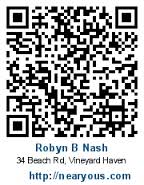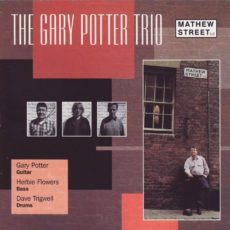
Daily Dose Of Jazz…
Gary Potter was born on November 15, 1965, Liverpool, Lancashire, England. Taking up guitar in his youth, he was playing in country music bands at the age of 12. He had a spell in the USA, drawing approving attention in Nashville, Tennessee, where he was elected to the Country Music Hall of Fame.
Drawing inspiration from early rock ‘n’ roll before becoming interested in jazz, Gary especially admired and influenced by the playing of Django Reinhardt. He has had numerous outspoken admirers of his playing including fellow guitarists Chet Atkins and George Harrison.
By the early 1990s, Potter became best known for his jazz work and in 1994 came second in the guitar section of the British Jazz Awards. He also appeared in the television documentary, The Django Legacy, worked with guitarist Nils Solberg, bass player Andy Crowdy and violinist Christian Garrick. In addition to performing, guitarist Gary Potter composes, arranges and records, while also teaching internationally.
Sponsored By
![]()
More Posts: guitar
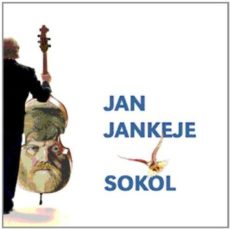
Daily Dose Of Jazz…
Jan Jankeje was born January Jankeje on July 30, 1950 in Bratislava, Czechoslovakia and studied and played the bass since childhood. He emigrated to Germany in 1968 and has since lived in the Stuttgart area.
He has worked with Ella Fitzgerald, Benny Goodman, Eugen Cicero, Al Casey, Benny Waters, Attila Zoller, George Wein, Joe Pass, Tal Farlow, Horst Jankowski, Oscar Klein and Jaco Pastorius among others. He has toured with Dieter Bihlmaier and with Hans-Jürgen Bock Ragtime Specht Groove.
He founded his own record company Jazz Point Records with his wife Gerti Jankejova and has recorded as a leader as well as Biréli Lagrènes , with whom he worked eight years from 1979. He also worked as a studio musician recording live recordings with Jaco Pastorius.
With Bernd Marquart he founded in 1988 the Jazz Jokers, debuting the same year with a CD, international touring and festivals. He also played gypsy jazz with Wedeli Köhler, Diz Dizley and Manno Guttenberger. He wrote the song First Tango for Jeanne Moreau in Rainer Werner Fassbinder’s last film Querelle. Bassist, composer, producer and bandleader Jan Jankeje continues to perform, record and tour.
Sponsored By
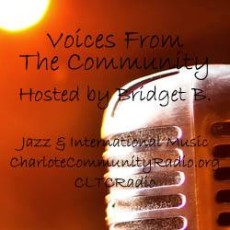
Voices From The Community
![]()
More Posts: bass
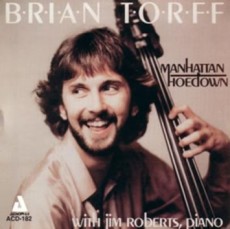
Daily Dose Of Jazz…
Brian Torff was born on March 16, 1954 in Chicago, Illinois. He began his professional career in 1974 when bassist Milt Hinton offered him the opportunity of touring with Cleo Laine. During the late 70’s, he recorded and performed with pianists Mary Lou Williams and Marian McPartland, and toured Australia, New Zealand, and Hong Kong with the jazz violinist Stephane Grappelli. He played in pianist Erroll Garner’s last group and worked in the big bands of Oliver Nelson, and The Thad Jones / Mel Lewis Orchestra.
In 1979, Brian joined pianist George Shearing in a duo setting and for 3.5 years they toured throughout the U.S., Europe, Brazil, and South Africa. They received worldwide acclaim and were played The Tonight Show, The Merv Griffin Show, had their own PBS special from the Cafe Carlyle in New York City and performed for President Reagan at the White House.
Torff has composed works for four albums as a leader, with George Shearing and Larry Coryell, has composed scores for the Boston Pops, Los Angeles Philharmonic, and the Pittsburgh Symphony, and has appeared as conductor, composer, and clinician for numerous high school and college jazz festivals. He penned the book In Love With Voices: A Jazz Memoir chronicles his early musical roots and provides portraits of musicians he has worked with, including Frank Sinatra, Mel Tormé, Erroll Garner, Benny Goodman, Mary Lou Williams, Marian McPartland, Stephane Grappelli, and George Shearing.
He is a professor of music and the director of the music program at Fairfield University in Connecticut, makes frequent appearances at the Regina A. Quick Center for the Arts, and lead the Fairfield University Jazz Ensemble along with guest jazz artists. Brian leads his own trio, and is the musical director for the Django Reinhardt New York Festival, has played Lincoln Center, the Kennedy Center, Birdland and Carnegie Hall. He has with Mark O’Connor, Dave Grusin, Regina Carter, Yo-Yo Ma, Itzhak Perlman, and Pinchas Zukerman. He continues to perform at jazz festivals and workshops around the United States.
More Posts: bass
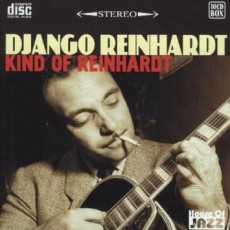
Daily Dose Of Jazz…
Jean Reinhardt better known as “Django” was born on January 23, 1910 in Liberchies, Pont-a-Celles, Belgium into a French family of Manouche Romani descent. His family made cane furniture for a living but it was comprised of several good amateur musicians. He spent most of his youth in Romani encampments close to Paris, where he started playing violin, banjo and guitar.
Reinhardt was attracted to music at an early age, first playing the violin. At age 12, he received a banjo-guitar as a gift and quickly learned to play by mimicking the fingerings of musicians he watched. By age 13, Reinhardt was able to make a living playing music. He received little formal education and acquired the rudiments of literacy only in adult life. His first known recordings, made in 1928, were of him playing the banjo.
At age 18 in 1928 Reinhardt was injured in a fire started by a knocked over candle. Over half his body suffered burns, two fingers and one leg were paralyzed and it was thought he would never walk or play again. But with therapy and practice he re-learned to play differently and walked with a cane.
The years between 1929 and 1933 were formative musically for Django when he became attracted to jazz listening to Louis Armstrong. Shortly thereafter he met Stephane Grappelli who had similar interests. The two became musical partners. In 1934, with an invitation by Hot Club de France secretary Pierre Nourry, he and Grappelli formed the Quintette du Hot Club de France. Over the years it hosted different players and adding a singer but for the most part allowed only stringed instruments.
In 1933, Reinhardt recorded two takes each of vocal numbers “Parce-que je vous aime” and “Si, j’aime Suzy”, continued to record into 1934, and in 1935 he and Stephane recorded sides for Decca Records. He played and recorded with Adelaide Hall, Coleman Hawkins, Benny Carter, Rex Stewart, Louis Armstrong, Dizzy Gillespie, and Duke Ellington.
By 1946, he was debuting at the Cleveland Music Hall as a special guest soloist with Duke Ellington and His Orchestra. As part of the U.S. tour Django also played two nights at Carnegie Hall, then secured an engagement at Café Society Uptown, where he played four solos a day, backed by the resident band drawing large audiences.
Returning to France in ’47, Reinhardt became re-immersed in Gypsy life, finding it difficult to adjust to the postwar world. Missing sold-out concerts, showing up without guitar or amplifier and wandering off were commonplace. However, during this period he continued to attend the R-26 artistic salon in Montmartre, improvising with his devoted collaborator, Stéphane Grappelli.
From 1951 until his death at age 43 on May 16, 1953 of a brain hemorrhage, Reinhardt retired to Samois-sur-Seine near Fontainbleau. He had continued to play in Paris jazz clubs and began playing electric guitar. (He often used a Selmer fitted with an electric pickup, despite his initial hesitation about the instrument.) His final recordings made with his “Nouvelle Quintette” in the last few months of his life show him moving in a new musical direction; he had assimilated the vocabulary of bebop and fused it with his own melodic style.
More Posts: guitar


